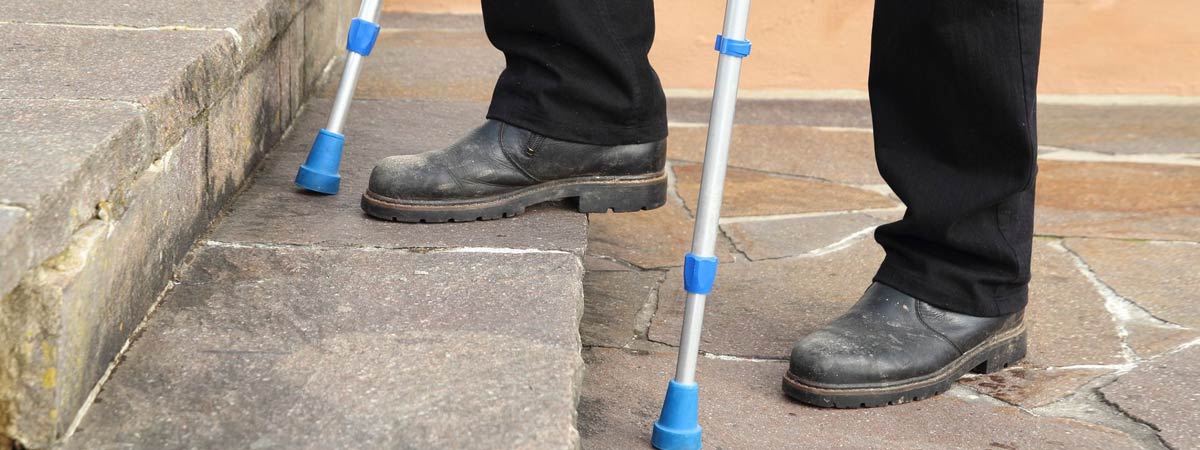Our Philadelphia Slip and Fall Lawyers recover compensation for victims of “slip and fall” accidents caused by negligence and unsafe products. More than 1 million people in the U.S. sustain fall related injuries, every year. Over 17,000 of these people die from those injuries.
In many slip and fall cases, hazardous conditions such as wet floors, poorly maintained surfaces, or inadequate lighting are common culprits. These conditions can lead to severe injuries, including traumatic brain injuries and spinal cord injuries. Our experienced slip and fall accident lawyers at Heiligman & Mogul, P.C. understand the complexities of premises liability claims and the critical role of thorough evidence collection. We meticulously review medical records, accident reports, and other documentation to build a strong case for fair compensation. Whether you are dealing with an insurance company or a business owner, our team is dedicated to securing a fair settlement that covers all your medical care, lost wages, and other related expenses.
Injuries sustained in falls can be extensive and permanent, and may include:
- back injuries
- broken bones
- spinal cord damage
- brain damage
- eye injuries
- paralysis
- coma
These cases can be highly complex. Results often depend upon Philadelphia Slip and Fall Lawyers’ experience with the law and evidence specific to these legal actions. Heiligman & Mogul, P.C. can help you obtain the justice you deserve, including damages for:
- past and future medical costs
- lost wages
- loss of earning potential
- rehabilitation
- physical, emotional, and occupational therapy
- costs of home remodeling and in-home care
- pain and suffering
- loss of the enjoyment of life
Slip and Fall Injuries
Slip and fall injuries occur every day in a wide variety of settings. Common examples of falls that occur on work, business, and private property include falls caused by:
- defective ladders, scaffolding, roofs, and other elevated working areas
- carelessly erected or designed work sites
- slippery or uneven surfaces
- icy, uneven, or damaged sidewalks and steps
- poorly lighted walkways and parking lots
- poorly lighted stairwells
- staircases without railings
- defective staircases or railings
- negligently maintained private property
Laws that Govern Slip and Fall Cases
Liability for fall injuries may depend upon many things, including laws of:
- negligence
- products liability, and / or
- premises liability
Negligence law may hold a maintenance company liable for fall injuries caused by unsafely maintained property. Under products liability law, a fall from a faulty ladder may lead to a damages award against the product’s:
- designer
- manufacturer
- suppliers
- assembler
- wholesaler, and
- retailer
Premises liability law may govern liability for a fall that occurs on business or other property. In Pennsylvania, a property owner’s liability will depend upon the type of “visitor” injured on the owner’s premises. Premises liability law categorizes visitors to property as invitees, licensees, and trespassers.
Invitees
A property owner owes the highest duty of care to “invitees.” The most common example of an invitee is a business customer who comes onto business property. The owner’s duty to invitees includes the duty to:
- make reasonable and regular inspections to locate dangerous conditions
- take reasonable steps to remedy the dangers, or
- clearly warn invitees that the dangers exist
Licensees
Property owners owe the next highest duty of care to “licensees.” Licensees are people given express or implied permission to be on an owner’s property, and may include:
- delivery persons
- people hired to work on an owner’s property
- workers who come onto property to inspect meters
- people invited as guests
- neighbors who stop by without express invitation
An owner’s duty to a licensee is limited to a duty to warn the licensee of:
- dangerous conditions the owner already knows about, or
- conditions the owner should have discovered with reasonable care
The duty owed to a licensee does not include the duty to inspect the property to see if these dangers exist.
Trespassers
In most cases, property owners owe the lowest duty of care to trespassers. Unless a property owner knows that a trespasser has a habit of coming onto the land, the owner has no duty to protect the trespasser from dangerous conditions by:
- inspecting
- remedying, or
- warning of potential dangers
If the owner does know that a trespasser has been coming onto the land, the owner has a duty to warn the trespasser of dangers:
- known to the owner, and
- that the trespasser would be unlikely to discover
A property owner also has a duty to protect child trespassers from dangerous conditions that may attract children. When such conditions exist, the owner must take reasonable steps to prevent children from gaining access to the property or dangerous condition. These conditions may include:
- pools
- other bodies of water
- abandoned structures
- old equipment or machinery
Contact our Philadelphia Slip and Fall Lawyers
Navigating the legal process can be daunting, especially when dealing with the aftermath of a serious injury. As seasoned personal injury attorneys, we not only pursue compensation for tangible losses like medical expenses and loss of earning potential but also for intangible damages such as emotional distress, loss of consortium, and loss of enjoyment of life. Our law firm is committed to providing compassionate and comprehensive legal support, ensuring that our clients receive the justice they deserve.

